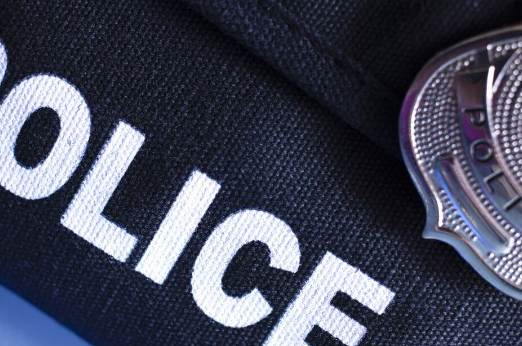
MOBILE, Alabama — The talk of this Alabama city for the past week has been a video of police Sgt. John Carlos Young demanding answers for a string of shooting deaths of black children.
Young, who is black, said on June 1, “There’s a subculture of gun violence in the city of Mobile with young black men, and it’s high damn time we did something about it.” He challenged area officials, media, and colleges to study how to solve it. “The most important question is, how do we get these young black men to stop killing black women, and children, and each other. … Do background checks of who has single fathers, and what were their education levels. Let’s figure out a solution.”
Overall crime statistics in Mobile aren’t bad, but the murder rate here, as in many places nationwide, is trending upward. When 14-year-old Ciara Jackson of Houston, Texas, who was visiting family in Alabama, was gunned down in her car on May 31, the day after 11-year-old Lequinten Morrissette was killed by a stray bullet as he sat inside his house, Sgt. Young repeatedly deflected questions at a media briefing about the granular details of the killing. Instead, he insisted the societal problem must be addressed.
Young provided sickeningly ironic context: “Ciara is 14. She died on the street named after Michael Donald, who was the last known lynching by the Ku Klux Klan in 1980. Forty years later, more innocent blood is shed on that street that is supposed to memorialize that death and sacrifice. And a black girl is gunned down on that street by a black man. It’s disgusting! I said it! So, no one has to be called a racist anymore.”
Young continued: “Our homicides, [ages] 19, 19, 18, 17, 16, 14, 11, and 4 years old, were all black children. When are we as a city going to wake up and say, ‘Let’s address this issue’?”
Young then said he doesn’t care if he is pilloried for his message. “If you want to slay me in the media, fine,” he said. “But don’t forget these innocent black lives that have been lost. … The loss of a tragic life is my point at this time.”
Young didn’t stop there. Even more directly, he said, “The [only] connection [among the murders] is that these guns were held in the hands of young black men. We need to figure out, young black men: Why are you always grabbing weapons to solve these problems? … There must be a better solution than killing somebody.”
Let nobody misunderstand: This problem does not inhere in race — it is a problem of culture. Whatever the origins of it, wherever historical blame lies, there remain segregated subcultures within these United States, and one of those segregated subcultures is statistically more prone than others to dangerous social pathologies. And Young has put his finger on one major element: Study after study makes it indisputable that (in the words of one) “the more opportunities a child has to interact with his or her biological father, the less likely he or she is to commit a crime or have contact with the juvenile justice system.”
The police sergeant’s challenge to all of us is to figure out how to discourage the cycle of family breakdown and fatherless children. That cycle creates too many victimized children of all races but statistically creates a disproportionate share of black childhood victims of crime. It is in the name and cause of these children that we must accept Sgt. Young’s summons to action.
* Article from: The Washington Examiner